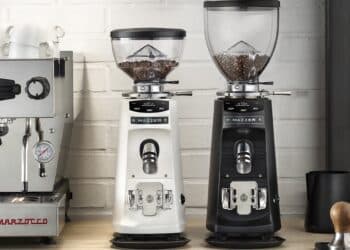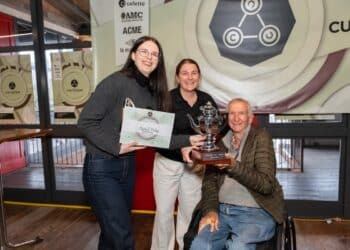Nespresso has published the results from The Positive Cup, its seven-year sustainability strategy that focuses on coffee, climate, and aluminium. This forms part of the companies overarching commitment to make every Nespresso cup of coffee carbon neutral by 2022.
The report finds that between 2014 and 2020, Nespresso invested approximately $862 million into advancing its sustainable operations, from sourcing certified coffee to carbon reduction and capsule recycling.
“Here in Australia, not only do we offer customers the highest quality, sustainably sourced coffee, we have built the most successful privately run recycling program in the country, where 100% of our customers can recycle their capsules,” says Nespresso.
“And it doesn’t stop there. We will continue to find ways to improve on this and all areas of our business, both locally and globally.”
Australia has been at the forefront of sustainable innovation, says Nespresso Australia, with the branch providing its customers with 19,000 capsule collection points and partnering with not-for-profit environmental organisation, Planet Ark.
This partnership has seen Nespresso Australia actively encouraging its customers to recycle used capsules.
Nespresso Australia has also partnered with The University of New South Wales to support its Centre for Sustainable Materials Research in developing new ways to recycle used materials.
“For the past seven years, The Positive Cup has guided us on our sustainability journey, ensuring we maintain absolute focus and momentum on achieving our goals. We have learnt a lot, and we’re proud of our achievements,” says Jérôme Perez, Global Head of Sustainability at Nespresso.
Key outcomes of the report include Nespresso sustainably sourcing 93 per cent of its permanent coffee through the brand’s AAA Sustainable Quality Program. This is up from 84 per cent in 2014, with 48 per cent of this being certified coffee, up 9 per cent since 2014.
“Building more robust, more resilient farming communities has always been at the heart of Nespresso’s activities,” Nespresso says.
According to the report, the brand continues to drive projects designed to protect coffee farmer welfare, such as through retirement savings and crop insurance schemes.
Today, more than 2000 Colombian coffee farmers and 1500 Indonesian farmers have a pension saving scheme in place, while in Colombia more than 4700 coffee farmers also have crop insurance. This means more than 37065 acres of coffee farming land is protected.
Nespresso also reports reaching a global recycling rate of 32 per cent at the end of 2020, up by 17 per cent since 2014. The brand also says that 90 per cent of its consumers have access to convenient capsule recycling solutions.
With recycling efforts across 59 countries, Nespresso says it has dedicated recycling systems in 54 of these regions. The company also shares its manufacturing infrastructure with other capsule creators in five of these countries.
In 38 countries, Nespresso says it offers a ‘Recycling at Home’ option in which consumers can have their used capsules collected from their place of residence.
Related to aluminium, which Nespresso describes as “the infinitely recyclable material that Nespresso capsules are created from”, the brand states that it paved the way to create the first-ever sustainable virgin aluminium standard through being a founding member of the Aluminium Stewardship Initiative (ASI).
The ASI, says Nespresso, set the first-ever global standards for sustainably, responsibly produced aluminium.
Despite not achieving its target to source 100 per cent ASI-certified aluminium at the end of 2020, Nespresso says it will continue to prioritise producing capsules using recycled material.
All Nespresso production centres, however, are now ASI-certified with the brand having identified recycled aluminium suppliers for its ASI certification. According to the brand, this has put the building blocks in place for full ASI sourcing certification in 2022.
Related to climate, Nespresso says it reduced the carbon footprint of each cup of coffee by 24 per cent, as compared to its 2009 baseline. This was achieved through investments in renewable energy, eco-designed products, sourcing low carbon materials, and optimising logistics.
This comes as part of the companies $22 million investment into natural climate solutions since 2014.
“We know we need to do more and accelerate our journey in this decisive decade to 2030 by increasing the scale of our coffee sourcing program, expanding the recycling of our capsules through industry-wide approaches, pushing innovation and driving systemic change, especially through agroforestry,” says Jérôme.
“The Positive Cup is the launchpad and successful model upon which we will continue building to drive further advancements to preserve the future of our planet.”
To read the full report, click here.
BeanScene is now on LinkedIn! Follow HERE to stay up to date on all things coffee.




